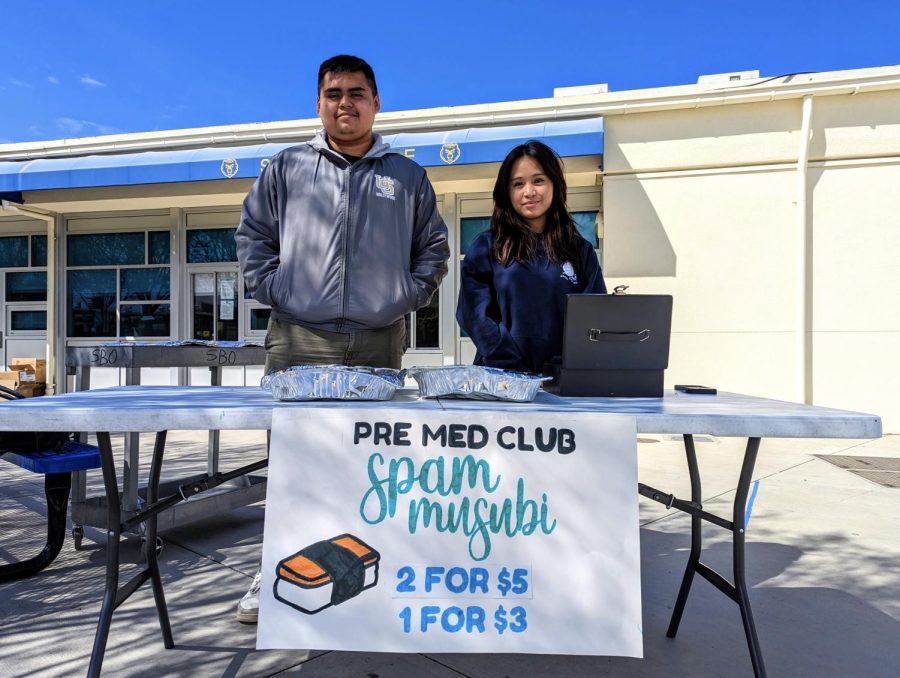CAMPUS: SCHS clubs and programs raise money for resources
The engagement and planning of fundraising is vital for many programs on campus. Many clubs, sports and council programs utilize fundraisers to earn money for their needs with the goal of interacting with their peers and community.
Various programs on campus use social media to share announcements promoting their fundraisers. Junior Class Secretary/Treasurer Nadine Paula Ngo believes it is important to publicize fundraising flyers ahead of time to ensure the success of the event.
“One thing that is really important is that these flyers go out a week or two in advance because people don’t check their social media a lot, so you really need to make sure that there’s enough time,” Ngo said.
Additionally, Ngo finds the morning announcements useful as they verbally inform students of upcoming events on campus. She also encouraged club leaders to utilize the morning announcements as a resource in order to spread more information about their club.
“People often take it (morning announcements) for granted,” Ngo said. “A lot of clubs don’t take advantage of that, but they should, because it’s a really good way they (peers) hear about fundraisers.”
Alongside clubs, various sports teams on campus use fundraising to earn money for equipment, team gear and more.
For the baseball team, many fundraisers are often hosted through restaurants, encouraging friends and family of the athletes to donate to the team. These fundraisers are often called Dining for Dollars, in which a portion of a customer’s order will go to the club or organization hosting the fundraiser.
Varsity baseball coach Pedro Martinez uses fundraisers to spread awareness about Santa Clara baseball.
“I thought it was good for community building, and a lot of people from the community come that have either played for me in the past, their parents played or are current players,” Martinez said.
Fundraising also allows players to buy jerseys, practice equipment, and apply upgrades to certain facilities. Instead of having a designated amount of money the baseball team wants to raise, their goal is to produce and save enough funds so that gear is accessible throughout the season without depending upon fundraisers or having to spontaneously host one whenever they are in need of funds.
“We’re attempting to have money so we are not living year-to-year on our fundraisers,” Martinez said. “If we need something in the middle of the year, we can get it instead of waiting until next year because we have to fundraise.”
Similar to many sports teams, the SCHS music department finds fundraising useful in order to purchase new equipment and upgrade their current systems. Music director Johnny Erdman is grateful for fundraising because it allows him to express his passion for performing and sharing music with his students.
“I embrace that (fundraising) because it only opens up doors for us to share our music with more people and do new and exciting things with music,” Erdman said.
Sophomore Maya Villarreal, who is involved in marching band and winter guard, also feels that fundraisers are helpful in spreading the value of music around the campus.
“Fundraising is really, really important to us because band and music really gets overlooked,” Villarreal said. “So we’re always just trying to get money back in the program.”
Clubs on campus also use fundraising as a way to raise money for the community. Clubs like Interact are raising money to donate and provide food to underprivileged families. Since SCHS’s Interact Club is part of a district with other high schools’ Interact clubs, it is important for them to reach their goals, and they will often collaborate with the other schools to do so.
“We have a goal set every year to earn enough money to donate to the program, and it would feel wrong if we didn’t do our part,” Ngo said.
Other clubs, such as Pre-Med Club, use the money they fundraise for their own projects, as well as to give back to others.
“We use our money to donate to hospitals and charities, especially children’s hospitals,” Ngo said. “We also use our money to run our case studies, which are a bunch of hands-on activities that simulate what it’s like to be in the medical field.”
Despite the efforts of many club’s fundraisers, Ngo noticed many students’ frustration with the seemingly expensive costs of goods sold in fundraisers but explained prices are often continuing to increase.
“People don’t realize that fundraising is really, really expensive, and the companies that we buy from don’t price their things cheaply, even if we buy it in bulk,” Ngo said.
Ngo believes if more people were to brainstorm ideas for fundraising projects, the school would have a wider variety of items sold.
“One person can’t come up with a bunch of good ideas, but if a bunch of people came together and talked about a common interest in fundraisers, we (SCHS) would have a bunch of unique fundraisers,” Ngo said.
For many, participating and helping run fundraisers benefits the campus and the program’s own goals.
“Anyone has the opportunity to help us because those funds only help the greater good of our programs,” Erdman said.


